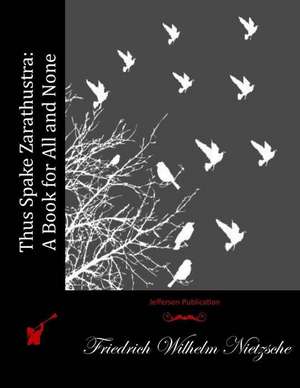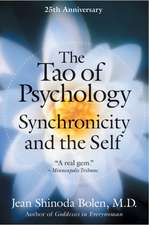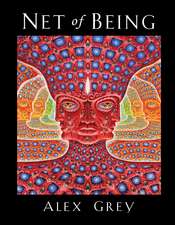Thus Spake Zarathustra
Autor Friedrich Wilhelm Nietzscheen Limba Engleză Paperback
| Toate formatele și edițiile | Preț | Express |
|---|---|---|
| Paperback (12) | 60.10 lei 3-5 săpt. | |
| CreateSpace Independent Publishing Platform – | 60.10 lei 3-5 săpt. | |
| CREATESPACE – | 85.62 lei 3-5 săpt. | |
| Prometheus Books – 31 mar 1990 | 93.39 lei 3-5 săpt. | |
| – | 96.40 lei 3-5 săpt. | |
| CREATESPACE – | 107.01 lei 3-5 săpt. | |
| CREATESPACE – | 143.76 lei 3-5 săpt. | |
| – | 148.22 lei 3-5 săpt. | |
| COSIMO CLASSICS – 30 noi 2006 | 94.37 lei 6-8 săpt. | |
| CreateSpace Independent Publishing Platform – dec 2015 | 109.55 lei 6-8 săpt. | |
| CreateSpace Independent Publishing Platform – dec 2015 | 109.55 lei 6-8 săpt. | |
| Echo Library – 31 iul 2009 | 145.02 lei 38-44 zile | |
| Theophania Publishing – | 158.03 lei 6-8 săpt. | |
| Hardback (2) | 169.68 lei 6-8 săpt. | |
| Ancient Wisdom Publications – 8 noi 2015 | 169.68 lei 6-8 săpt. | |
| COSIMO CLASSICS – 30 iun 2010 | 203.90 lei 6-8 săpt. |
Preț: 60.10 lei
Nou
Puncte Express: 90
Preț estimativ în valută:
11.50€ • 11.96$ • 9.63£
11.50€ • 11.96$ • 9.63£
Carte disponibilă
Livrare economică 22 februarie-08 martie
Preluare comenzi: 021 569.72.76
Specificații
ISBN-13: 9781511982665
ISBN-10: 1511982667
Pagini: 142
Dimensiuni: 216 x 279 x 8 mm
Greutate: 0.35 kg
Editura: CreateSpace Independent Publishing Platform
ISBN-10: 1511982667
Pagini: 142
Dimensiuni: 216 x 279 x 8 mm
Greutate: 0.35 kg
Editura: CreateSpace Independent Publishing Platform
Notă biografică
Friedrich Nietzsche, (born October 15, 1844, Röcken, Saxony, Prussia [Germany]-died August 25, 1900, Weimar, Thuringian States), German classical scholar, philosopher, and critic of culture, who became one of the most influential of all modern thinkers. His attempts to unmask the motives that underlie traditional Western religion, morality, and philosophy deeply affected generations of theologians, philosophers, psychologists, poets, novelists, and playwrights. He thought through the consequences of the triumph of the Enlightenment's secularism, expressed in his observation that "God is dead," in a way that determined the agenda for many of Europe's most-celebrated intellectuals after his death. Although he was an ardent foe of nationalism, anti-Semitism, and power politics, his name was later invoked by fascists to advance the very things he loathed.












